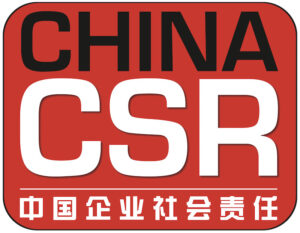By ChinaCSR.com Editors
This past week marked some of the first indicators in China this year that corporate social responsibility practitioners are already confronting the effects of the global financial crisis.
Part of any good CSR program is balancing human resource needs with the company's bottom line. Shenzhen ZTC Telecommunications Plc, a company listed in London that is well-known in China for producing cloned cell phones, has been exposed as one of 48 employers who owed back pay to their employees in Shenzhen. According to a list published by Shenzhen Municipal Labor and Social Security Bureau, the 48 companies owed more than CNY30 million in total to their employees in the fourth quarter of 2008. China's new labor law went into effect on January 1, 2008, so one year after that employee-friendly law took effect, companies must now grapple with both the societal implications of layoffs as well as the public relations effects these downsizes have on company brands.
But not all companies are removing staff during this financial crisis. With it's good central planning and sound monetary policies, China still remains a potential bright spot for foreign companies seeking to strike it rich. Chinese media previously reported that Ericsson China would cut 150 staff in March 2009, accounting for 5% of its Chinese employees. This was said to be a part of Ericsson's global layoff of 5,000 people. However, a representative from the human resources department of Ericsson China denied the rumor in Chinese media and says their pressure now is from recruitment, not layoffs. Ericsson's technology department in China will hire several hundred new employees this year and its telecommunications service department also needs new blood.
Though the week began ominously in Beijing with fireworks that claimed lives in a television building, the effects of fireworks on Chinese society came fully to bear when a Beijing government agency proclaimed that fireworks that were used during the recent Spring Festival holiday worsened Beijing's air quality. Data from Beijing's Municipal Environment Bureau shows that Beijing's air quality reached the fifth class, marking "a high degree of seriousness", and it was the most serious pollution in the city in the past eight months. Companies were responsible for some of the celebratory fireworks, so part of a good CSR program should be the integration of eco-friendly celebrations into the corporate calendar. Fireworks were invented in China and will always be part of Chinese culture, so companies need to address how they can best balance the celebrations with harmonious environmental principles.
With environmental issues in mind, China's Ministry of Finance and the Ministry of Science and Technology have jointly issued a provisional measure on the management of government subsidies for energy-saving and alternative energy automobiles. As part of the plan, purchases of battery-powered buses which are powered by more than 50% electricity will receive a subsidy of CNY600,000 per bus. The Ministry of Finance says that the central finance authority will arrange part of the subsidy from the energy saving and emission reduction special fund to support the nation's adoption of cleantech and alternative energy vehicles.
And with more eco-friendly vehicles on the road, safety is more important than ever. Fujian Xiapu County Court issued a landmark criminal conviction and heavy penalties against the Xiapu Huafeng Factory after finding the factory and its legal representative guilty of counterfeiting Honeywell's "Bendix" trademark as well as brands of several other international companies. Huafeng Factory was first raided by Chinese government officials in 2006, resulting in the confiscation of 12,560 counterfeit "Bendix" vehicle brake pads. Honeywell markets its brake pads under the Bendix brand around the world. Now drivers can feel better about stopping in traffic.
Whether named sustainability, ethics, corporate citizenship, corporate responsibility, green business, or corporate social responsibility, CSR is a key component of doing business in China during both the worst and best of times. And as foreign companies' revenues are squeezed overseas, how they conduct their business in China will fall under the microscope, so it is more important than ever for them to always strive to do the right thing.

